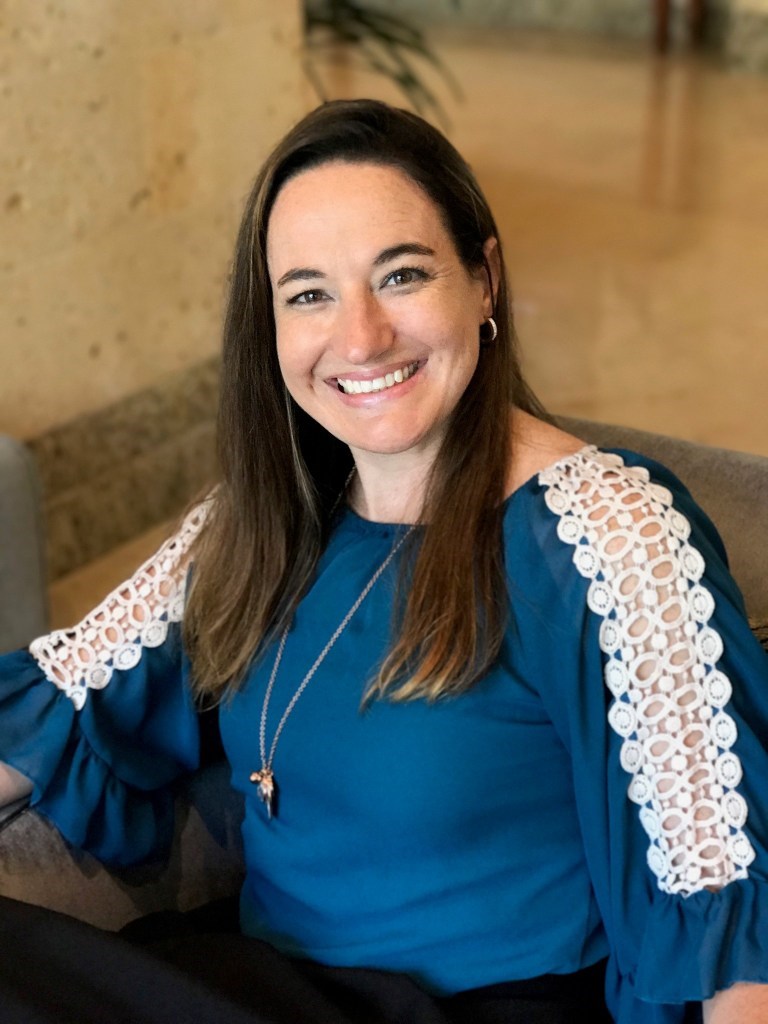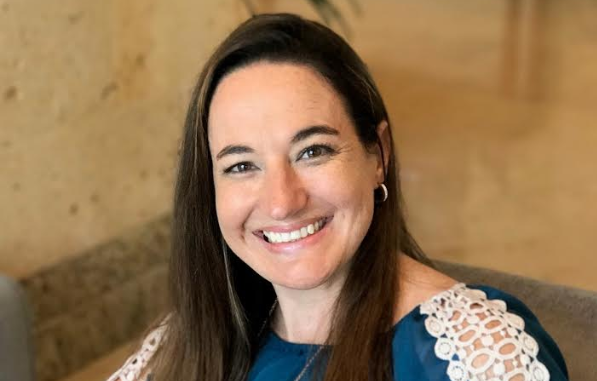Plano resident Amy Morrison has recently created a medical practice model that few would have imagined could be built, particularly in the state of Texas. Yet today, the Morrison Clinic on Preston Rd in North Dallas, a facility owned and operated by a solo physician assistant, stands as one example of the practice of future medicine.
Amy herself never expected to be a pioneer. She had planned to become a doctor when she entered Butler University on a soccer scholarship in 1999. It was there that she became aware of the physician assistant (PA) program, and quickly realized the deep impact of these professionals on the lives of patients. Her timing was perfect. The medical industry had begun to widely embrace the use of nurse practitioners and physician assistants to reduce costs and to provide better care for patients.

Amy completed the graduation requirements for her Bachelor of Science degree at Butler and later received a master’s degree through the University of Nebraska. Her first full-time position came at the University of Texas Southwestern in the multiple sclerosis clinic. The daily treatment of patients whose bodies were slowly deteriorating left Amy with an aching desire to work with patients who had hope of recovery. But the position held a hidden blessing. It was there that Amy was first attracted to psychiatry, a field where needs far outweigh the available providers.
A series of other positions followed in which she gained invaluable experience working with psychiatrists. However, she struggled to accept the business models of those practices, which seemed to focus on the quantity of patients rather than the quality of individual care. In some instances, Amy was given only 15 minutes to manage medication for a patient with whom she had no previous contact. Understandably, this restrictive environment made it difficult to determine and treat the root issues of patients suffering from emotional and mental distress. Patients often felt short-changed and failed to improve even when doctors prescribed additional medications. Little effort went toward involving the patient as part of the care team.
At another practice, Amy encountered an inefficient pen-and-paper system that made it even more difficult to properly assess and evaluate patients. Amy often raised a voice of concern regarding the level of care she felt her patients deserved. This led to frequent conflict within the politically charged clinic. After six years of employment, she was discharged as the perpetual troublemaker. Amy now refers to that day as “Liberation Day.”
Read more: New $107 million patient tower for Medical City Plano
She had long dreamed of opening her own clinic to “take care of people the way I would want to be treated.” She quickly completed her remaining research on best practices and contacted a former colleague, a counselor who was also looking to make a change in her practice. The two set up an office-share arrangement, and Amy purchased the equipment she would need, including electronic tablets for her patients to check into the clinic on their own.
As soon as word spread that she was opening her own practice, many of her former patients made appointments to continue the medical care she had initiated. Today those patients make up about a third of her practice, with another third coming from patient and professional referrals, and the remaining third from those accessing her website.
Although insurers Cigna and Blue Cross were willing to move her credentialing to the new location, other insurers have balked at having a single provider in their networks. She has also severed ties with one major insurer because of poor reimbursement, and she does not participate in Medicare or Medicaid. Cash rates are at a reasonable level to accommodate those who wish to be treated out of network.
The typical patient at Amy’s practice is an adult between 30 and 50, although Amy treats patients as young as 18. The patient may suffer from a variety of issues, including adult ADHD (attention-deficit-hyperactivity disorder), depression, PTSD (post-traumatic stress syndrome,) anxiety, insomnia, bi-polar disorder, and OCD (obsessive-compulsive disorder.) By the time the patient is seen in-clinic, each has already worked with an off-site assistant to confirm insurance coverage as needed, complete necessary forms, pre-authorize services, and to ensure that the patient is not a likely candidate for hospitalization.
Upon arriving at the office, the patient checks in via the patient portal and then completes a self-evaluation to help Amy determine the real reason for the visit. Often, it is not what the patient had initially anticipated. The initial 60-minute evaluation is a series of “nit-picking” medical questions to rule out what is not wrong with the patient. For example, someone may arrive with a self-diagnosis of “racing thoughts” and suspect that she may be suffering from bi-polar disorder. Amy’s expertise helps the patient to see that those racing thoughts may be the result of disorganized thinking, which can be addressed through self-help techniques, rather than a mental illness needing medication.
Read more: TruDerm opening at Legacy West, Plano
If needed, prescriptions are ordered, but in smaller amounts and combinations than prescribed by the typical doctor. Those meds are supervised in subsequent visits. However, rather than simply addressing the mental or emotional issue with drugs, Amy works with each patient to resolve the personal issues behind the illness. Over the years, she has honed her interviewing skills to ask questions in just the right way to discern the behaviors that some would consider abnormal. For example, she may ask if the patient is irritable with family members, has trouble concentrating, or sleeps and eats too little or too much. If so, what were the triggers behind that behavior? The answers to such questions often allow the patient to re-gain control of their actions before they plunge into full-blown depression or paranoia. The process becomes a bi-lateral effort, involving the patients in their own recovery while relying on Amy’s compassion and knowledge.
Under Texas law, a physician need not be a co-owner or to be present in the clinic to provide supervision. Rather, the supervising physician for Morrison Clinic is always available for consultation should a need arise. She meets monthly with Amy to discuss patient care and frequently reviews Amy’s electronic chart notes and e-prescriptions. That arrangement has benefitted Amy’s practice by ensuring that a physician, who may have a more comprehensive medical perspective on the case, is a committed member of the team helping the patient overcome his mental or emotional illness.
Another advantage in operating her own practice is that Amy can set her own office hours. She sees patients on Mondays, Wednesdays, and Thursdays. Other days during the week are spent on support of her practice, particularly on her website at morrisonclinic.com and her Pinterest page at morrisonclinic. Unlike others who may outsource this function, Amy has created and maintained her own website and Pinterest page from the beginning. Patients and the public can find a wealth of materials posted to the sites, including information about her services, patient forms, helpful information written by others, and even articles written by Amy herself. Also listed on her website are testimonials of her ability to connect deeply with patients to help them resolve their issues. For example, one patient left the following rating:
Amy has gone above and beyond! She’s very welcoming, extremely easy to talk with, and remarkably knowledgeable in Psychiatry. I’ve been going to her for over 2 years now and she has always shown great interest in her patients. If you or anyone you know are struggling with any mental disorders, I would unequivocally recommend her!
This work schedule also allows Amy time to spend with her two grade-school age children. Her therapeutic skills often spill over to the dinner table when each member of the family relates one good event and one bad event from the day. Amy then helps her children to work through the emotional impact of those daily experiences.
Read more: Bags of Hope clothe sexual assault survivors
Even after twelve years treating patients, Amy is still constantly learning from them and from collaboration with professional therapists who co-manage her patients’ treatment. For example, one of patients constantly picked at the skin on her hand. Amy re-directed that habit with a set of adhesive labels. Each label was inscribed with mantras such as “No bad feeling lasts forever.” This specific patient would attach the label to a hard surface and then pick it off while constantly repeating the typed mantra. That approach worked so well that a colleague suggested placing a bowl of stickers in the office for patients to take home to use as needed for their diagnosis. Now many more patients are being helped.
Amy acknowledges that her unique model of care may not work for every physician assistant. For example, some types of care may require expensive special equipment. In addition, setting up a medical office can entail an enormous initial financial investment. Other PA’s may not be able to find physicians who are willing to supervise without draining the PA’s resources. Finally, there are those who find that working for a doctor or medical group that can provide insurance and benefits is a more comfortable fit for them.
Of course, those are all important considerations. But as her North Dallas practice continues to grow, Amy is committed to its success. And she leaves one word of advice to other physician assistants who are entrepreneurs at heart. “Never,” she says, “be afraid to live your dreams. You may be astonished to see what you can do.”
The Morrison Clinic
17746 Preston Road #100
Dallas, TX 75252
972-656-9532
morrisonclinic.com




